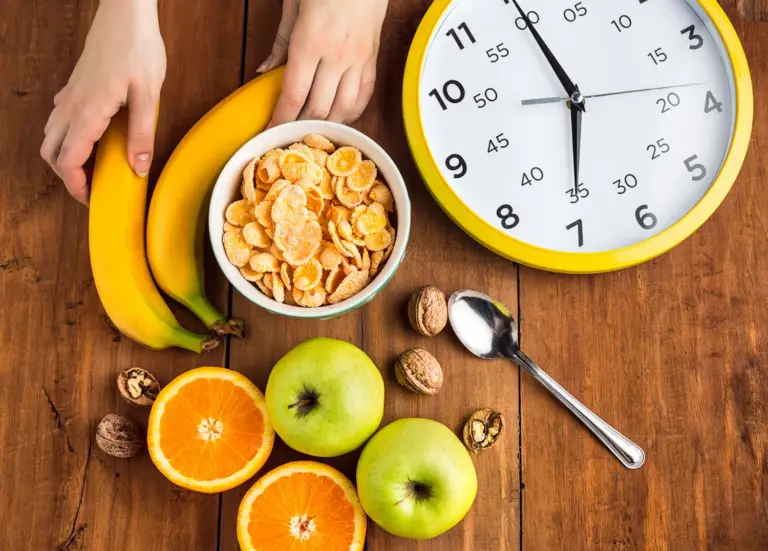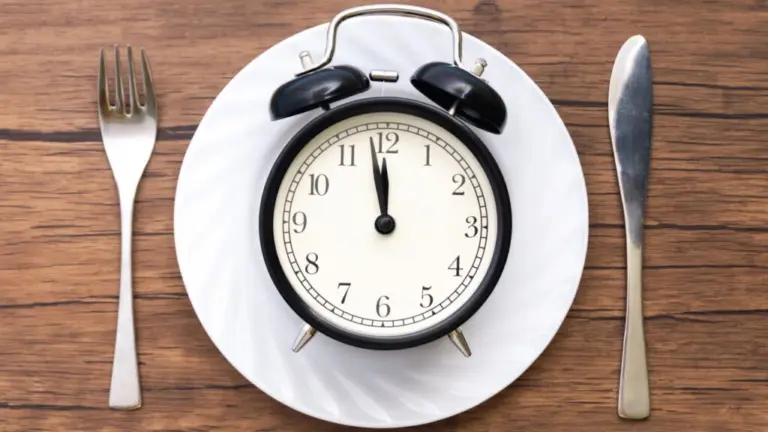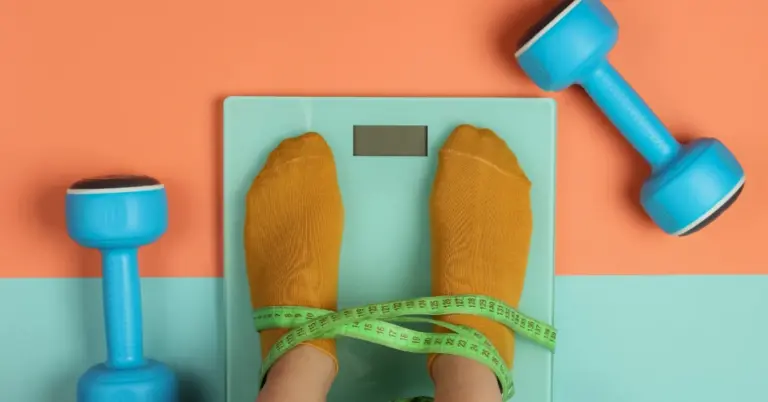Hey guys! How are you? Let's talk about something that has been gaining more and more popularity in the world of health and fitness: intermittent fasting.
I know that many people are still skeptical, thinking that this is just another fad. But let me tell you something: when you understand how beneficial intermittent fasting can be, the story changes.
And yes, I'm here to share how it can improve your health and give you a boost in performance, whether for your day-to-day life or for training.
And look, before you think “this isn’t for me”, don’t worry, I’ll guide you step by step.
Here, the conversation will be relaxed, but straight to the point, because I'm also on the team of those who want to understand things in a practical and real way. Let's go?
What is Intermittent Fasting and Why Does It Work?
THE intermittent fasting It’s not about going without food for days on end, as many people think. It’s more about better organizing the periods in which you eat and the periods in which you “give your body a rest.”
Very simply, you divide your day into eating windows and fasting windows.
Imagine that you have a time when you eat normally and another time when you hold back, without ingesting anything other than liquids (and not coffee full of sugar, okay?).
The cool thing is that intermittent fasting doesn’t have to be some crazy restrictive diet. It’s not about what you eat, but when you eat.
Now, you might be thinking, “Okay, but what happens to your body during fasting?” Here’s the secret: during fasting, your body starts using its fat stores for energy, which can help you lose weight, improve your metabolism, and even increase your mental and physical performance.
Yes, you start burning more fat and improving your endurance, without having to get into that “calorie counting” vibe all the time.
How It Works in Practice: My Experience with Intermittent Fasting
I'll tell you a little about how intermittent fasting changed my routine. At first, I was afraid that I wouldn't be able to handle it during the fasting period, but the truth is that the body adapts.
I personally follow the 16/8 protocol (where I fast for 16 hours and eat during an 8-hour window). And let me tell you, it's easier than it sounds.
At first, you feel hungry here and there, but after a while, your body gets used to it and you realize that hunger is not an uncontrollable thing.
This type of fasting made me more energetic and focused throughout the day. Since I work on the computer all the time, I noticed a much greater mental clarity.
Seriously, it's like my mind becomes sharper. And what about my training? It was an incredible gain! I no longer felt that "weak" sensation that I used to have in the middle of a workout.
Fasting Strategies: How to Choose the Best One for You?
Now, if you are just starting out or have already tried fasting and haven't gotten the results you expected, I'll give you some tips to help you get the strategies right.
There is no one way to do intermittent fasting. It’s all about experimenting and seeing what works best for your body. Here are some options:
1. The Classic 16/8
This is the most popular. Basically, you fast for 16 hours and eat for the remaining 8 hours. For those who like convenience, you can have a “breakfast” later and have lunch at your regular time.
Some people do this by having their first meal of the day at 12pm and their last at 8pm, for example. I usually alternate the times according to my routine and it has worked really well.
2. 24-Hour Fast (Once or Twice a Week)
This fast is a bit more intense because you go an entire day without eating. People usually do it once a week or every other day, but it's important to respect your body's signals. If you decide to try it, start slowly and see how your body reacts.
3. Alternate Fasting (Every 2 days)
Another option is alternate day fasting, which means that on alternate days you fast for 24 hours and eat normally on the other days.
This protocol can be very effective for those looking to lose weight quickly, but it needs to be done with caution, because your body may need more time to adapt.
Benefits of Intermittent Fasting That I Have Experienced in Practice
Now, let's talk about the real benefits that I noticed on my own journey with intermittent fasting. I'll be honest with you: besides weight loss (which is obvious), there are other advantages that no one talks about much, but that make all the difference in everyday life. Check it out:
1. Mental Clarity and Focus
This is one of the first things I noticed: my mind becomes sharper. Seriously, I’ve read about how fasting can improve brain function, but I only noticed it in practice. During periods of fasting, you can think faster and more accurately.
2. Less Hunger Throughout the Day
One of the things I like the most is that, after a while, you no longer feel that uncontrollable hunger. I used to have hunger pangs in the middle of the afternoon, but with intermittent fasting, that disappeared. Your body adapts and you end up feeling fuller for longer.
3. More Energy for Workouts
I've always exercised, but intermittent fasting gave me an extra boost. Of course, at first there was that "fear" of not having enough energy to work out, but in fact, I felt stronger and more resilient during my workouts. Trust me, you'll start to realize that you don't need a full belly to give your best.
4. Regulation of Insulin Levels and Improvement in Metabolism
And it’s not just the aesthetic results that are worth it. Fasting helps control insulin levels, which is great for those looking to improve their overall health. In addition, fat burning becomes more efficient, as your body starts to use stored fat as a source of energy. This is a double benefit: health and performance.
Intermittent Fasting for Beginners: Everything You Need to Know
news
Final Tips: How to Get Started Safely and Efficiently
If you're wondering where to start, here are my tips for enter the game without error:
- Start slowly: If you've never fasted before, don't try 24 hours on the first day. Start with 12 hours and gradually increase your fasting time.
- Pay attention to your diet: Fasting does not mean eating anything. Keep an eye on the quality of your food, especially during the feeding window.
- Hydrate yourself well: Water will be your best friend during the fast. And it's worth remembering that unsweetened teas are also included in the list.
- Listen to your body: Fasting should be a tool for improving health, not torture. If you feel unwell, stop. There is no “one right way.”
So, are you ready to give it a try? Intermittent fasting isn’t a magic solution, but when done correctly, it can be a great ally for your health and performance. The key is to respect your body and not give in to the pressure of wanting to follow everything exactly.




